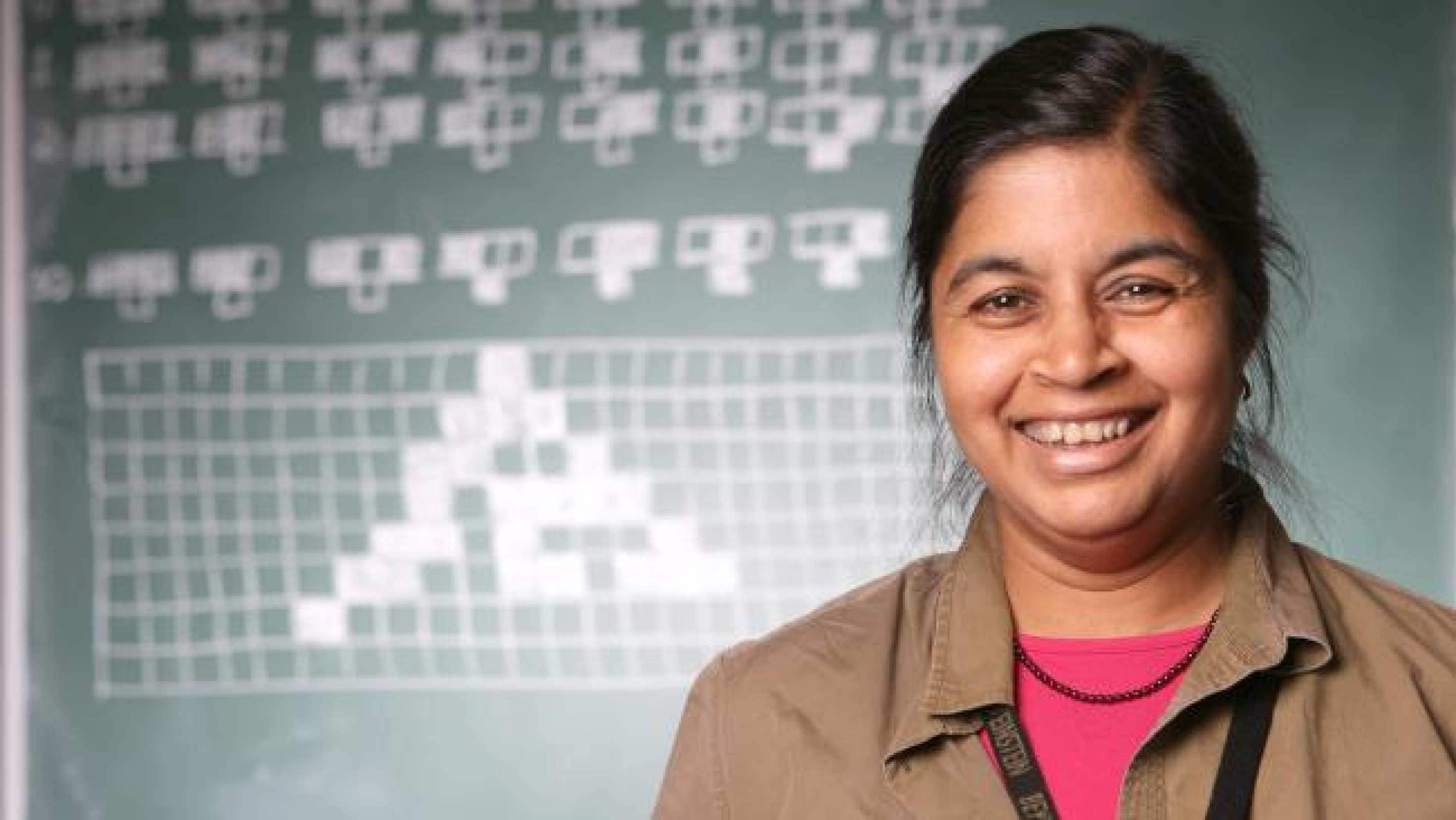What it's like to be a woman in science
With the launch of the Science in Australia Gender Equity (SAGE) pilot program, Professor Nalini Joshi describes her experience as the first female mathematics professor at Sydney.
This week saw the launch of the Science in Australia Gender Equity (SAGE) pilot program by the Australian Academy of Science (AAS) in partnership with the Academy of Technological Science and Engineering (ATSE).
The program will include the University of Sydney.
SAGE is a gender equity program to address the chronic underrepresentation of women in Science, Technology, Engineering, Mathematics and Medicine (STEMM).
In the following extract, Professor Nalini Joshi reflects on her experiences working in the field.

Professor Nalini Joshi
I was the first female professor of mathematics ever appointed to the University of Sydney, Australia’s oldest university. I remained in that singular position for 14 years, until July this year when the number doubled; we now have two female professors of mathematics!
When I arrived, the most common question I got asked was: “are you a real professor?” I tried to respond: “yes, according to my payslip, I am.” Later I worked out what the question meant. Was I a chair of a discipline area? Or a permanent named chair corresponding to distinctive research and scholarly leadership? Or was my position of lesser distinction?
I wondered then whether new male professors would have been asked that question. The underlying message was that being female is incompatible with being chair of a discipline. It also implied that I couldn’t belong.
I have been the only woman in most rooms for most of my professional life. I had come to terms with contradictory subliminal messages a very long time ago, and they were not going to stop me pursuing and solving problems in mathematics.
The standard approaches undertaken by Australian organisations for equity have been blind and deaf to these subliminal messages. Most organisations would say they are ticking all the right boxes for equity, but at the same time remain puzzled by the persistent lack of diversity at the senior levels.
The SAGE initiative aims to create a framework that will bring systemic, subliminal bias to light and change the gendered landscape in Australian organisations.
Nalini Joshi is the Georgina Sweet Australian Laureate Fellow in Mathematics and the Chair of Applied Mathematics at the University of Sydney.
This is an extract of an article first published in The Conversation.
Related articles
Resetting the table to halt expanding waistlines
Can farmers, producers and regulators work together at all points of the food supply chain to help curb Australia’s growing obesity problem?

Eureka Prize for Associate Professor Michael J. Biercuk
Associate Professor Biercuk was recognised with the prestigious prize for contributions at the leading edge of quantum science research.
Scientists should take a leaf out of wellness bloggers' books
How can we distinguish credible wellness information from unfounded pseudoscience? And why is it that wellness gurus are often taken more seriously than scientists? Jackie Randles writes.
18 of our most exciting scientists on Twitter
It's National Science Week this week from 15-23 August and for all you science lovers, we have created a list of the University of Sydney's most exciting scientists on Twitter.
How Einstein could help unlock the mysteries of space travel
Warp drives might be the stuff of science fiction, but they could be a step closer to reality if we look to Einstein's theory of gravity, according to a University of Sydney researcher.
Proof is in the breakfast cereal
The science of snap, crackle and pop has expanded beyond the breakfast bowl with an international research team using puffed rice cereal to explain the movement and crushing of porous materials when compressed.
University of Sydney celebrates Sydney Science Festival
From Einstein's theory of gravity to Aboriginal astronomical knowledge, University of Sydney researchers are proving there's no single formula for exploring a love of science this National Science Week.
How mobile phones could save us from obesity
A world-first intervention designed by Charles Perkins Centre researchers specifically for young people found mobile phones could improve health and halt weight gain.
Starchy carbs, not a Paleo diet, advanced the human race
Starchy carbohydrates were a major factor in the evolution of the human brain, according to a new study co-authored by researchers from the University of Sydney's Charles Perkins Centre and Faculty of Agriculture and Environment.
Big data maps world's ocean floor
Scientists from the University of Sydney's School of Geosciences have led the creation of the world's first digital map of the seafloor's geology.